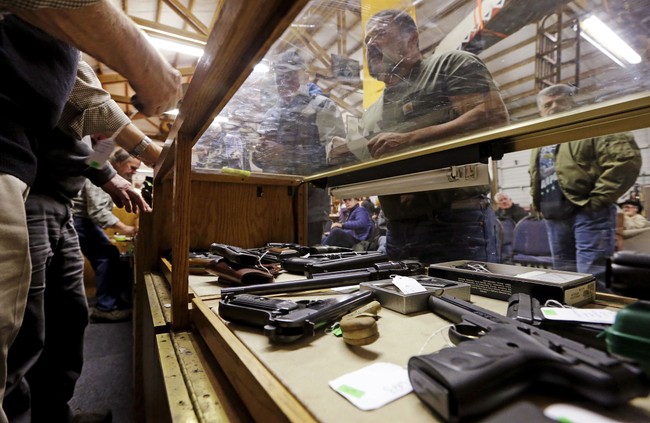One of the criticisms I level at doctors who take anti-gun positions, using their positions to argue from authority, is that most of them only see one side of firearms. They don’t actually understand guns or why most people buy them. They only see the aftermath of gang warfare and act as if pretty much everything they see is the totality of the issue.
That’s not remotely the case and for a large variety of reasons.
Now, let’s consider this and think about a doctor deciding to ask if you have a gun in the house. The vast majority of us get riled. We don’t like people asking us about guns, especially because too many people judge us negatively for it. Even if they want to talk about gun safety, a lot of them really don’t know anything about the subject themselves.
Yet it seems some doctors in Wisconsin are trying to learn about guns so they will.
Dr. James Bigham, a Madison family medicine doctor, said asking these questions is vital to help patients understand risks and how to reduce them. And, he adds, doctors can do a better job learning how to ask them.
Many doctors may be uncomfortable talking about guns, Bigham said, because the majority don’t own one. Bigham has had personal experience fumbling through such conversations with his patients.
Bigham wanted to speak more intelligently − and empathetically − about something that roughly half the population owns, including many of his patients.
Two years ago, Bigham, a clinical professor at the University of Wisconsin School of Medicine and Public Health, began teaching medical students on the issue, not just providing statistics around firearms injury but also arranging for instruction from firearms trainers on how guns function and why someone may want to own one.
“Folks who are incredibly thoughtful and compassionate and loving and kind and wonderful family people and community members have the right to own a firearm for many different reasons, and it doesn’t make them bad or wrong,” said Bigham, 44, who grew up in Shorewood and lives in Madison. “I want to make sure they feel cared for when we’re talking about these things.”
Bigham said he long used the talking point that the “safest home for a child is one without a gun.” Data supports that and yet Bigham began to reframe his thinking and language a few years ago. Based on injury rates, it is also true to say that the safest home is one without a car, he pointed out, backed by National Traffic Safety Administration data.
“I want to really work on making sure that my biases don’t get in the way of the care I provide my patient. And we have got to be ready to care for any patient at any time, no matter what their preferences are, if they own a firearm or not,” he said.
I respect Bigham for this.
It’s not easy to recognize that your biases might be getting in the way. Unfortunately for him, a lot of his colleagues are making the issue more difficult for him.
There shouldn’t really be any harm in making sure that guns in the home are properly stored and that people are being safe gun owners. The issue is that I’ve seen too many anti-gun doctors–and the American Medical Association itself–pontificate about guns and how we need all this gun control for me to be comfortable talking with any physician about it unless I know already they’re pro-Second Amendment.
Couple that with the distrust many of us feel toward authority of late and you’re going to run into an issue. Doctors are authorities, and when the AMA is taking an anti-gun position, many people feel that’s where doctors, as a whole, stand.
Bigham is trying to do the right thing, but he’s having to deal with the fact that he seems to be the minority in his profession, at least as the general public sees it.
We might know that there are people like those in Doctors for Responsible Gun Ownership who respect our right to keep and bear arms, but until you can get the rest to sit down, shut up, and stop pretending they’re the real experts when they don’t know what they’re talking about, efforts like this are going to run into brick walls.
Read the full article here





